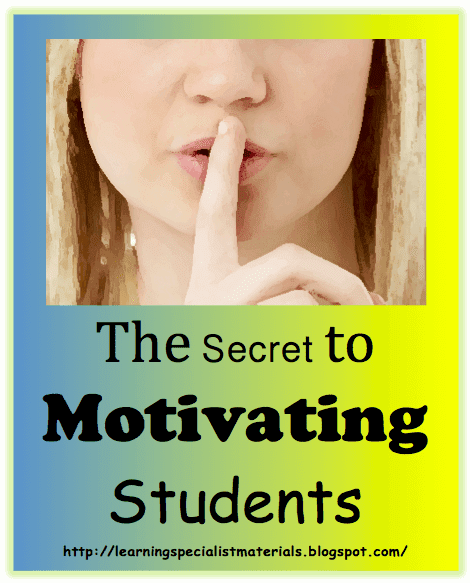This week I wanted to tell you about my online store, Good Sensory Learning. I’m Dr. Erica Warren, and I established this site so I could share all the materials that I have created over the last 20+ years as a learning specialist and educational therapist. When I first began my private practice, Learning to Learn, I had great difficulty finding fun and multisensory materials for my students that were effective and engaging. So back in 2005, I made it my mission to design and distribute high-end, remedial products as well as memorable, motivating lessons that bring delight to learning. If you would like to try a free sampling of my activities , CLICK HERE . How Are the Products Organized at Good Sensory Learning? You can download my Free Printable Catalog or you can browse the site using the grey “search all products” bar in the top right of any page with keywords such as dyslexia, working memory, and executive functioning. What’s more, drop down menus in the red banner allow you t...
Motivation is thought to be a common culprit that plagues students, however this couldn't be further from the truth. As Rick Lavoie said, "It is not that students become unmotivated, because all human behavior is motivated." Instead, other factors such as anxiety, a poor self-esteem, learned helplessness, depression, and learning disabilities are just a few real causes that impact learning and appear to impact motivation.
How Can We Help Students that Appear to be Unmotivated?
First, we must try to understand the root causes of the unwanted behaviors. One can try to uncover these blockades through discussion, but it may be best to pursue help from a therapist, seek a comprehensive neuropsychological evaluation or find an excellent educational therapist or learning specialist that has some training in psychology. Once the underlying causes have been uncovered, one must provide the structure and support that will help to guide the student to better habits and behaviors.
3 Common Misconceptions:
- All students are motivated by the same things. In fact, students can be motivated by a wide range of contrasting options. One reason for this is because each learner comes to the classroom with different strengths and weaknesses. But personality issues can also play into the recipe for learning. For example, some students are motivated by challenging activities while others are motivated by manageable or easy activities. In addition, some students are motivated my competition, while others are motived by cooperation.
- Punishing students will increase motivation. Punishments are often dangerous because they can create anger and resentment. In addition, if a student is motivated to do well, but is struggling due to learning difficulties, punishments can result in learned helplessness, anxiety, and even depression.
- Rewards will motivate my students. Rewards can offer some external motivation, but what students really need is to be internally motivated. Intermittent reward, however, can be helpful, particularly as a way to celebrate success.
What Can Be Done to Motivate Students?
- Try to only praise effort and improvement. If you praise students at times when they know that they did not deserve the recognition, your accolades will lose credibility.
- Hold onto your power by offering limited choices instead of giving students open-ended options. Many young learners will challenge your authority, but giving into their fear and complaints will only teach them to protest and be defiant.
- Develop positive, supportive relationships. Try not to let a student's negativity or frustration impact your mood. Instead, stay calm, use a soothing voice and maintain control.
- Offer intermittent or unexpected rewards that celebrate achievements.
- Help students to uncover their "genius qualities" and integrate them into academics wherever possible.
- Replace tests with manageable projects.
- Move away from competition and create a cooperative learning environment. The only students that will be motivated by competition are the ones that know they will win. All the other students will feel lousy and may even come to resent the teacher or their peers that continually succeed. Instead, provide all students equal recognition. For example, instead of posting a single student's weekly achievement, allow all students space to post their best work of the week.
- Instead of pointing out what was done wrong - recognize what was done correctly. Also, encourage students to learn from their mistakes by allowing partial credit from completed test corrections.
- Replace negative feedback such as no, wrong, mistake, incorrect with almost, getting there, try again.
- Avoid negative labels such as careless, lazy, and unmotivated. Nobody is encouraged by deprecating remarks. Praise the good behavior and ignore the bad.
For more useful strategies consider Rick Lavoie's YouTube: Motivation Breakthrough
or purchasing his book:
I hope you found this blog helpful. If you have other ideas about how to motivate students, please leave a comment below this post.
Cheers, Dr. Erica Warren
Dr. Erica Warren is the author, illustrator, and publisher of multisensory educational materials at Good Sensory Learning and Dyslexia Materials. She is also the director of Learning to Learn and Learning Specialist Courses.
· Blog: https://learningspecialistmaterials.blogspot.com/
· YouTube Channel: https://www.youtube.com/user/warrenerica1
· Podcast: https://godyslexia.com/
· Store: http://www.Goodsensorylearning.com/ & www.dyslexiamaterials.com
· Courses: http://www.learningspecialistcourses.com/
· Newsletter Sign-up: https://app.convertkit.com/landing_pages/69400
· Blog: https://learningspecialistmaterials.blogspot.com/
· YouTube Channel: https://www.youtube.com/user/warrenerica1
· Podcast: https://godyslexia.com/
· Store: http://www.Goodsensorylearning.com/ & www.dyslexiamaterials.com
· Courses: http://www.learningspecialistcourses.com/
· Newsletter Sign-up: https://app.convertkit.com/landing_pages/69400


Comments
Post a Comment